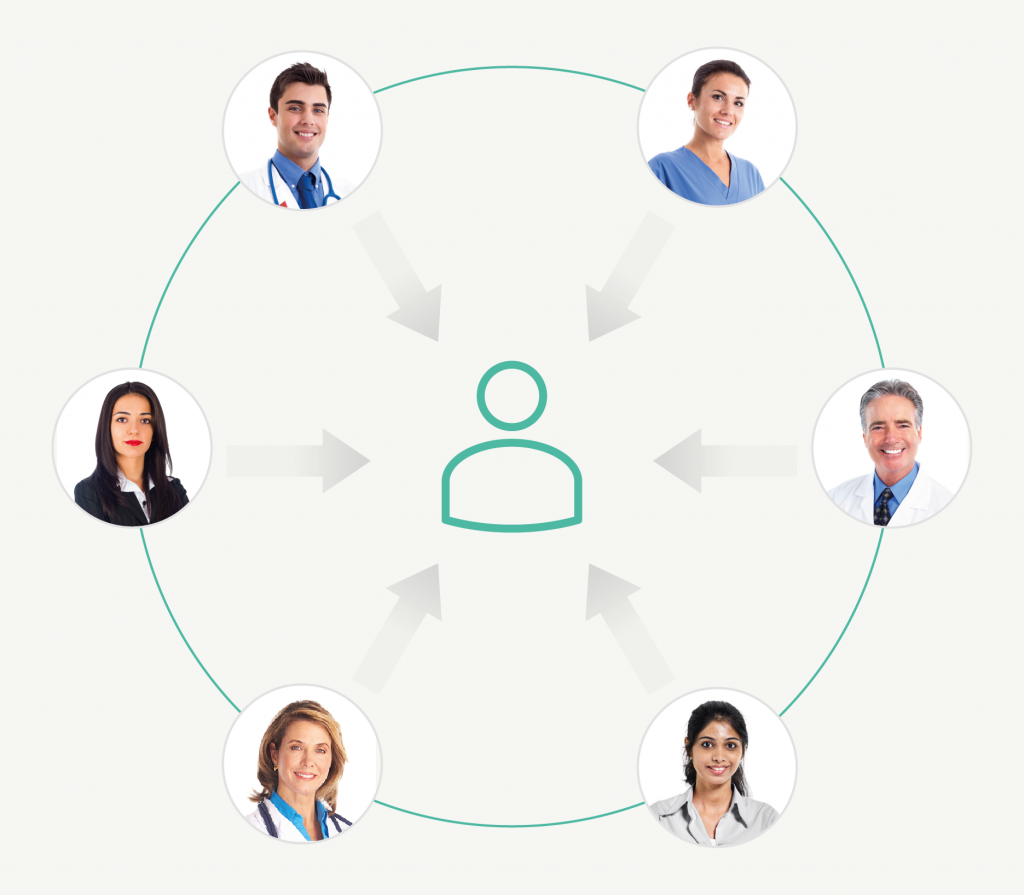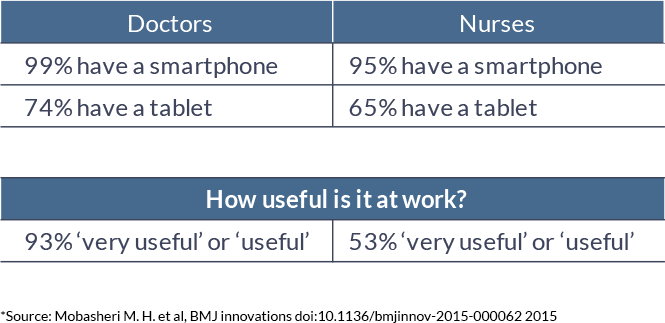
Communication is the foundation of effective care coordination. In the patient-centric care model, the circle of care team must be able to quickly reach each other and exchange information securely. However, this is not always the case.
In a 2015 Joint Commission study, 70% of treatment delays and sentinel events are attributable to a communication breakdown. Mobile technologies can help. Read five ways to improve hospital communication and increase efficiency.
Physicians have increasingly adopted the use of smartphones and tablets. Most doctors have a smartphone (99%) and a tablet (74%) and find it ‘useful’ at work (93%) according to a 2015 study. Nurses are also adopting new technologies as 95% own a smartphone, 65% own a tablet, and 53% find it ‘useful’ at work according to the same study.
Various smartphone features are useful in helping them perform their clinical duties. Over 80% of physicians use it for phone calling, web browsing, email, calendar and SMS messaging. Three of the five most used features are for communication.

Mobile devices however, are susceptible to security breaches. The increase of mobile technology use and cloud technologies have increased data privacy breaches and leaks.
In fact, 52% of surveyed healthcare organisations say that the number of data breaches caused by mobile devices has increased in the past 12 months. When it comes to the enterprise-level frameworks, 63% of surveyed healthcare organizations believe that mobile devices are the weakest link in their enterprise security framework.
